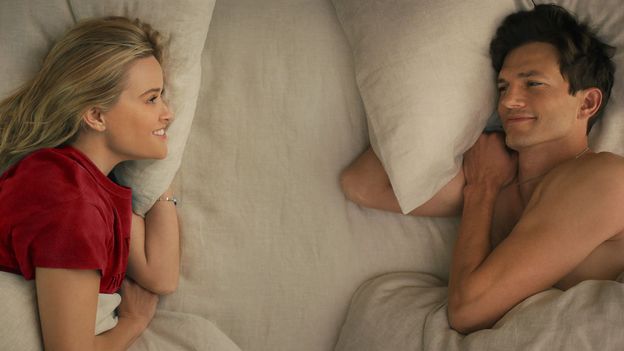
Annie Lord, dating columnist at British Vogue and author of break-up memoir Notes On Heartbreak, thinks this might be the case. “I just really want someone to run to me and tell me everything they love about me, to lay it all out there like Harry did,” she says, recalling her love for When Harry Met Sally. “I used to fantasise about that all the time, to the point where I would be disappointed if it never happened to me.” To Lord, some of the moments that stick out most from her favourite romcoms seem outdated today, like a man defending a woman’s honour, and whisking her off her feet. “I know in my head that, as a woman, I can do that for myself. But watching those older romcoms there’s a fantasy in not having to be self-sufficient, even though I know I can be,” she says. “They take us back to a simpler time. Everything is just so stressful right now. The planet is burning, the economy is terrible, so there’s an escapism there.” Now that we’re able to better identify outdated storylines and norms in romcoms, there is a knowing irony which allows us to still enjoy them, with a pinch of salt.
This ironic nostalgia is also driving the wave of new romcoms, many of which are trying to recreate the magic of old-school classics by openly borrowing their language and clichés. Now, audiences are much wiser to the narrative structure of romcoms and aren’t always watching them for a realistic portrayal of romance, or exemplary gender politics. “We’re in an era now where people are more unapologetic about enjoying the genre and fans are familiar with most of its tropes,” Meslow says. “They know what they’re signing up for – and they enjoy it.” Some romcoms are becoming more self-analytical and self-aware too. Billy Eichner’s 2022 romcom Bros made constant references to romcom tropes, Hallmark movies and the film’s own place within that canon. And we can see this as far back as 2011’s Friends with Benefits, starring Mila Kunis and Ashton Kutcher, where a running joke between the characters was the pair trying to avoid becoming a romcom cliché, before succumbing to the inevitable.
The future of romcoms
It feels like the audience for romcoms has now expanded. “For a long time, people thought romcoms were for women and gay men,” Betancourt says. “I definitely think that the audience has evolved and now includes more people.” This is partly down to streaming making it easier and cheaper to watch a wider variety of films. But even in the so-called romcom slump, there were films that challenged the genre’s traditional formula. Bridesmaids (2011) was a film that featured a romantic plotline, but primarily revolved around friendship. Bad Teacher (2011) followed a purposefully villainous protagonist who openly scammed school children, but who we ended up rooting for. It’s Complicated (2010) followed an older couple who rekindled their relationship. And from Wedding Crashers (2005) to Knocked Up (2007) and Along Came Polly (2004), there are no shortage of old-school romcoms that explored romance through a heterosexual male lens.
Now, though, we’re seeing a much greater diversity of characters and viewpoints. “You can’t write a history of the genre without acknowledging that it has been disproportionately white, rich, thin and straight,” Meslow says. “It’s also skewed towards fairly conservative relationship norms, but that is where streaming platforms can also take some credit now, because they tend to take more chances.” The new wave of romcoms have the opportunity to expand the plotlines we’re accustomed to seeing in glossy mainstream films. In fact, one of the main criticisms of Eichner’s gay romcom Bros – which, perhaps not unrelatedly, was initially released in theatres rather than streaming – was that it didn’t experiment enough. “Rather than reinvent the genre around a different set of mores, it simply replaces the ‘marriage plot’ with the ‘monogamy plot’, down to our former free-agent hero being harangued by his new beau about kids,” wrote Matt Brennan in the LA Times.